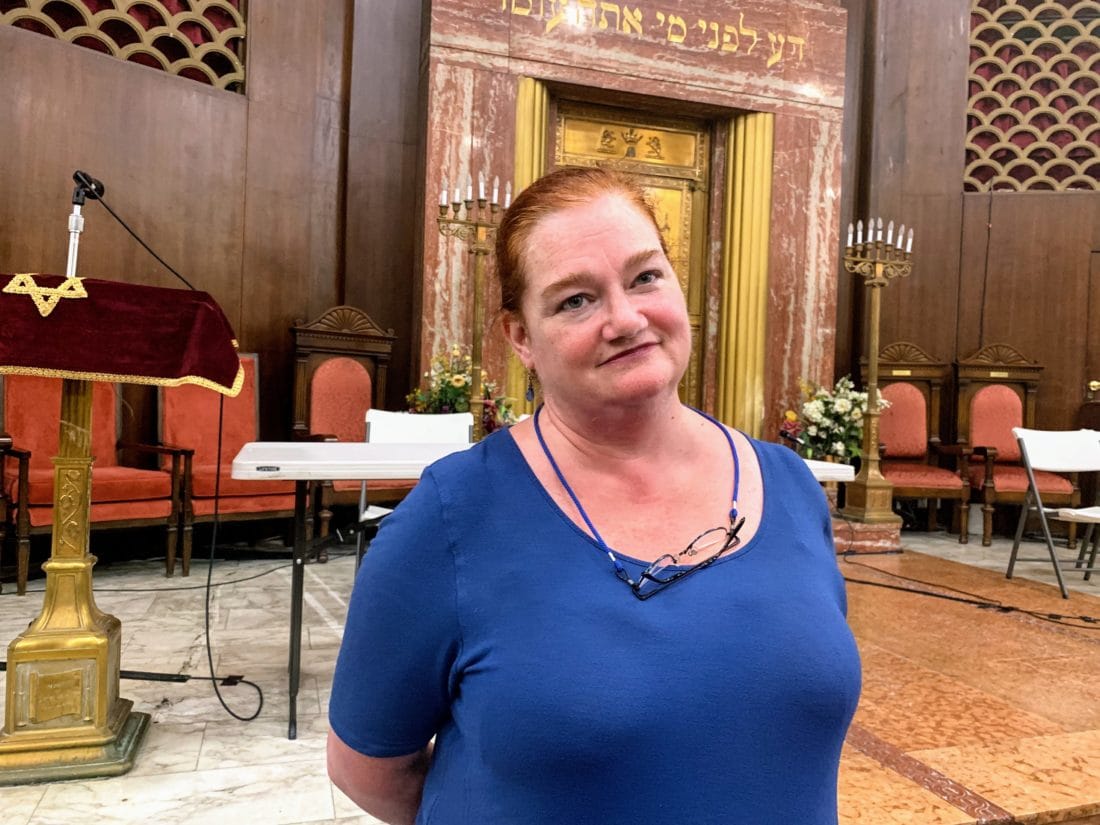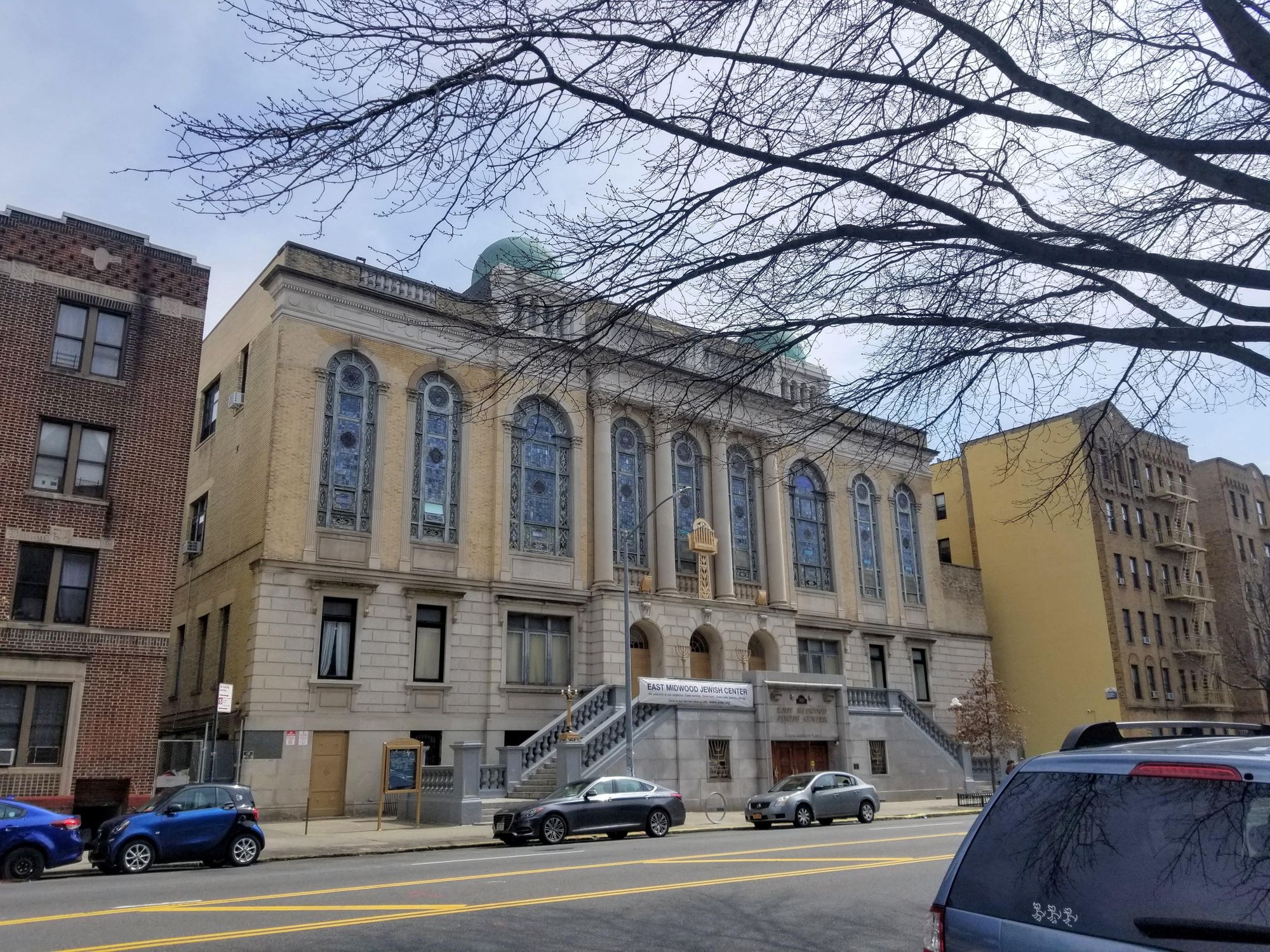Synagogues Plan For Coronavirus Restrictions


UPDATED 3/13/20: Rabbi Heidi Hoover of B’ShERT Reform Temple in Flatbush informs us that the synagogue made the decision to cancel all in-person gatherings – including services, and this weekend’s Purim festival. Please check with your Temples regarding services.
As the total cases of Novel Coronavirus (COVID-19) in Brooklyn mount, schools suspend classes, and Governor Cuomo bans gatherings of over 500 people, Brooklyn’s synagogues consider whether it’s wise to move forward with programming, and what they can do to lower the risk to congregants’ safety.
“Given what we know about the broad effect of measles on long term immunity in general, the recent Purim celebrations, and the measles outbreak in Brooklyn last winter. I worry that we will see a disproportional spike in COVID19 cases in the community in the next 5-14 days,” Ph.D. candidate Sam Katz wrote on Twitter.
While some synagogues chose to cancel services and other celebrations for the Jewish holiday of Purim, the Lubavitch World Headquarters in Crown Heights chose to celebrate as usual, AMNY reported. Rabbis advised congregants to carefully wash their hands and to remain home if there’s even a chance they might be sick. However, most congregants chose not to let fear get in the way of faith, showing up to take part in the reading of the Megillah and otherwise take comfort in the celebration of the ancient Jews’ triumph over the villainous Haman, which Purim commemorates.
“Everyone is closely watching the guidelines from health officials and at this point, services are going to continue, with added precautions,” said Rabbi Motti Seligson, Director of Media Relations for the Headquarters.“Chabad communities throughout Brooklyn, and beyond, are trying to be there for all the people in the community, especially those isolated because of the virus. It may mean visiting the elderly, who are at higher risk and making sure they have everything they need, and helping calm people with hope and confidence in the face of a panic.”Other synagogues, at least the ones who haven’t suspended services, have taken even more precautions.
Rabbi Heidi Hoover of B’ShERT Reform Temple in Flatbush told us that while they held an in-person Purim service, they also streamed it online for those who choose to self-isolate for their own safety or for others, and have begun offering online streaming of all services. They have also begun providing hand sanitizer, and placed signs in the bathrooms reminding congregants to carefully wash their hands. Hoover also emailed the congregation to remind them to stay home if they’re sick, in consideration of everyone in the community.

Hoover and the rest of the administration also carefully deliberated over whether to cancel this Saturday’s family Purim carnival and Megillah reading, but ultimately decided to move forward — albeit with a few alterations to regular programming. For example, they’ve chosen to eliminate all activities that involve kids touching the same items, like the beanbag toss, or making direct contact with one another.
One area where they won’t be taking chances, however, is with non-essential meetings like Torah study groups. They’ve also chosen to completely cancel an upcoming potluck they were planning for Friday night, and Hoover has chosen to cancel ‘Tot Shabbat,’ or children’s Shabbat services. To mitigate inconveniences to congregants who choose to stay home, Hoover said they’ll be providing access to online prayer books, or arrange for physical books to be delivered to peoples’ homes. They’ll also be taking steps in the next couple of days to implement tools like Zoom, a remote conferencing platform.
“We have ways that we can see each other and not be physically together, and we’re incredibly fortunate that we have those,” Hoover said. “And so we just need to fully deploy them.”
These measures are in place partly to protect the synagogue’s elderly congregants whom, Hoover said, make up roughly half of the overall congregation. These people aren’t just at risk of contracting illnesses, Hoover emphasized, but also of suffering from social isolation — a pervasive issue among the elderly.
Hoover said they’re also trying to protect the several children in the congregation who are immunocompromised because of health conditions.
While they’re doing everything they can, Hoover is nervous. “I’m worried for my congregants, and I’m worried about what happens if I have to self-quarantine,” she said. While she said she would obviously self-quarantine in the event that she contracted the virus, she’s still trying to come to terms with what that would feel like. “It’s hard for me to imagine myself not coming and leading services.”
On a lighter note, Hoover has suggested that congregants greet each other using the Vulcan gesture from Star Trek as opposed to shaking hands. The greeting, which involves the fingers spread apart in a V-like shape, is, Hoover said, used as a priestly blessing in Judaism.
“If we use that to greet each other, we are twice blessing each other.” Not touching the other person is, in the current environment, a holy act in itself, she said.
We’ve reached out to synagogues of other denominations, like the Park Slope Jewish Center and the East Midwood Jewish Center, both of which are conservative, for comment, but have not yet received their responses. We’re also waiting to hear back from the Department of Mental Health and Hygiene (DOHMH) on how they would advise institutions like synagogues to proceed with large gatherings.




